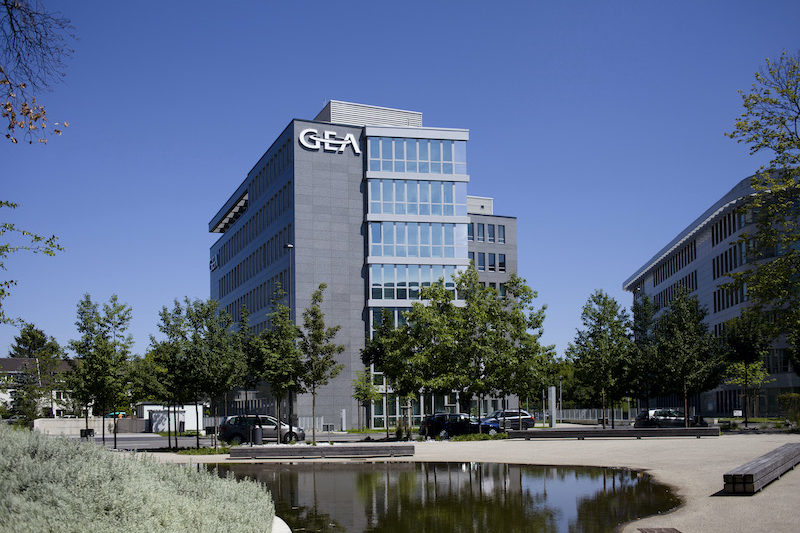GEA set to roll-out Nexus energy efficiency system targeting sector manufacturers

GEA Headquarters Düsseldorf, GEA Konzernzentrale Düsseldorf
German-headquartered equipment group GEA has claimed a key breakthrough with its holistic engineering solution designed to minimise energy use and carbon footprint across the food sector, including within confectionery and and bakery production plants, writes Neill Barston.
As the company explained, the technology is already in play within dairy and beverage industries, and is now being fully rolled-out across other sectors including use within sweets and snacks manufacturing environments.
According to the Dusseldorf business, the principle of its system integrates processing and heating/cooling-solutions rather than treating them separately, and reduces plant-wide energy consumption by up to 30% sometimes even eliminating the need for a boiler. Notably, as the firm asserted, the system has been devised to help manufacturers accelerate a pathway to delivering net-zero emissions while ensuring energy efficiency and a strong ROI.
The company is anticipating to showcase the recently created technology at IFFA trade fair in Frankfurt (Germany, Hall 8, Booth G10) from May 3-8, 2025.

pic: GEA’s Nexus can optimise plant processing. Pic: GEA
Moreover, as the business observed, there is a continuous demand, both from legislators and consumers, to reduce GHG (Greenhouse Gas) emissions; the industry is also intensely competitive, with manufacturers under constant pressure to reduce costs to remain competitive. Around 60% of energy consumption in a food processing plant is used for heating and cooling operations, making this the most impactful area for efficiency improvements as well as carbon footprint reduction.
At its core, GEA NEXUS takes a holistic view of the heating and cooling requirements in the production process. From the outset, the individual process phases with their respective temperature requirements and phase changes in the production process as well as the technical and process-related parameters are examined in detail and reviewed together with the food producer to find the most energy-efficient solution.
Too often, cooling is in the last part of the equation, missing key opportunities to make a real impact. Boilers and cooling systems are often oversized or the available waste heat streams are not used efficiently. For example, waste heat from cooling freshly prepared pasta can be repurposed by the heat pump to supply hot water for cooking pasta upstream – creating a sustainable, cost-effective cycle. By involving an interdisciplinary team of sustainability, cooling and process experts early in the design phase, GEA can leverage its special expertise to optimise the entire process line and achieve significant cost, energy and emission reductions for the plant.
GEA offers technical sustainability consulting services (Add Better Consulting) specifically for customers with existing production lines who are looking for assistance in assessing the potential and developing technical solutions to implement their sustainability goals. These are translated into detailed engineering designs, intelligently integrating the utility (heating and cooling) demands into the production processes. This approach benefits both greenfield projects and retrofitted process plants. When implemented during operation, the system ensures minimal downtime and delivers a fast return on investment.
Notably, as the company added, its experience has shown that integrating this approach early in the design phase of a plant, can reduce energy usage and operating costs by 30%, while CO2 and NOx emissions can be cut by up to 90%. CO2 emissions can even be reduced to zero if green electricity is used.



